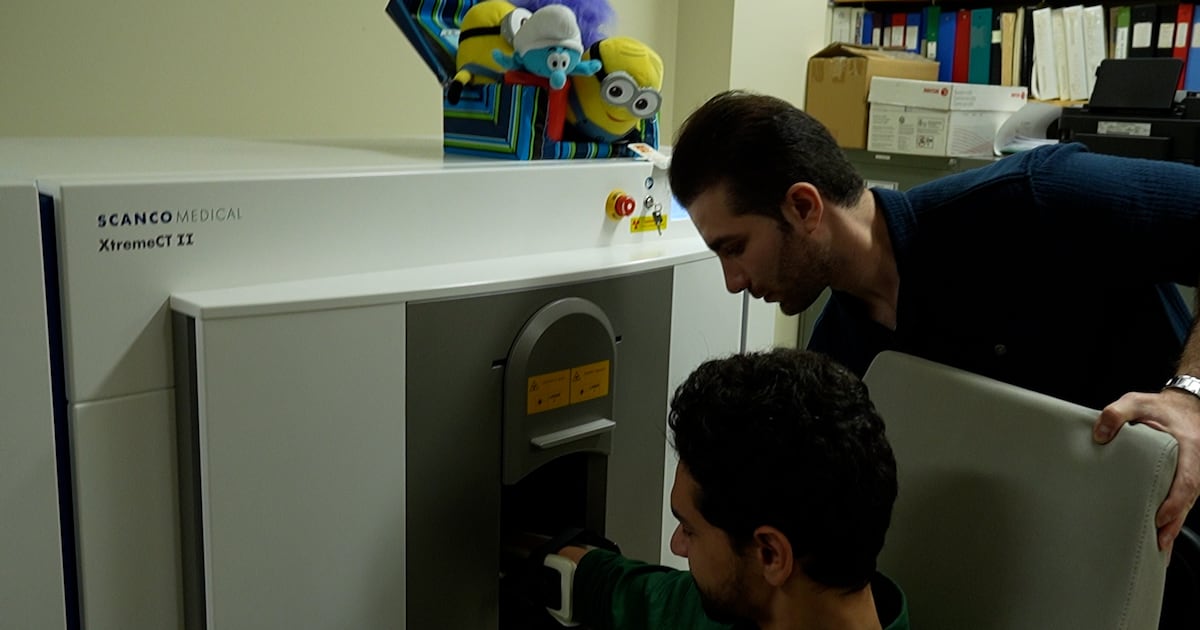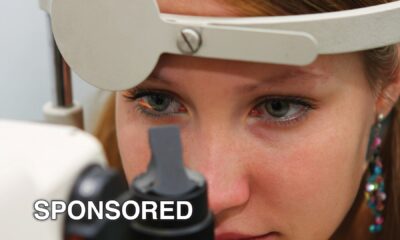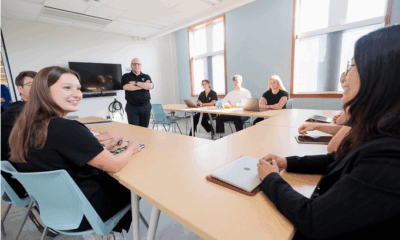Science
University of Saskatchewan Launches Groundbreaking Study on Bone Strength

Researchers at the University of Saskatchewan have initiated a pioneering study focusing on children’s bone strength, utilizing an advanced scanner to explore the reasons behind the fragility of certain bones. This research is part of the Canadian Bone Strength Development Study, the first national project aimed at understanding bone growth in children diagnosed with and without Type 1 diabetes.
The newly acquired scanner, a second-generation high-resolution peripheral quantitative computed tomography device, was funded by the Canada Foundation for Innovation. This technology allows researchers to capture detailed images of bone structure, which are critical for their analysis.
PhD candidate Ali Rezaei operates the scanner with young participants. He noted that children often display curiosity about the machine. “They’re always curious about the machine at first,” Rezaei explained. “Once I explain how it works, they relax, and all they have to do is sit still for about two minutes.” The scanning process lasts only two minutes, yet it produces intricate images that are essential for subsequent analysis.
Understanding Bone Strength in Children
The research team uses the data from the scans to create digital models that allow them to assess bone strength. Saija Kontulainen, associate dean of research in the College of Kinesiology, emphasized the significance of this technology. “Basically, we can see how strong your bone is based on the images of your bone,” she stated. Kontulainen collaborates with J.D. Johnston from the College of Engineering and Dr. Munier Nour from the College of Medicine in this vital study.
The primary goal of the research is to gain a deeper understanding of how bones develop, particularly in children at greater risk of fractures due to Type 1 diabetes. “When we know how bones are growing, we can design interventions to help optimize that,” Kontulainen added. The findings from this study are expected to lead to earlier treatments that enhance bone strength, ultimately improving the long-term quality of life for affected children.
Recruitment for Participants
The research team is actively seeking participants for the study, specifically targeting girls aged 10 to 11 and boys aged 11 to 12. The project offers a unique opportunity to contribute to groundbreaking research that may have a lasting impact on children’s health and well-being.
As the study progresses, researchers remain hopeful that their findings will provide valuable insights into bone development and lead to effective strategies for strengthening bones in young individuals, particularly those with Type 1 diabetes.
-

 Politics4 weeks ago
Politics4 weeks agoSecwepemc First Nation Seeks Aboriginal Title Over Kamloops Area
-

 World5 months ago
World5 months agoScientists Unearth Ancient Antarctic Ice to Unlock Climate Secrets
-

 Entertainment5 months ago
Entertainment5 months agoTrump and McCormick to Announce $70 Billion Energy Investments
-

 Science5 months ago
Science5 months agoFour Astronauts Return to Earth After International Space Station Mission
-

 Lifestyle5 months ago
Lifestyle5 months agoTransLink Launches Food Truck Program to Boost Revenue in Vancouver
-

 Technology3 months ago
Technology3 months agoApple Notes Enhances Functionality with Markdown Support in macOS 26
-

 Lifestyle3 months ago
Lifestyle3 months agoManitoba’s Burger Champion Shines Again Amid Dining Innovations
-

 Top Stories2 months ago
Top Stories2 months agoUrgent Update: Fatal Crash on Highway 99 Claims Life of Pitt Meadows Man
-

 Politics4 months ago
Politics4 months agoUkrainian Tennis Star Elina Svitolina Faces Death Threats Online
-

 Sports5 months ago
Sports5 months agoSearch Underway for Missing Hunter Amid Hokkaido Bear Emergency
-

 Politics5 months ago
Politics5 months agoCarney Engages First Nations Leaders at Development Law Summit
-

 Technology5 months ago
Technology5 months agoFrosthaven Launches Early Access on July 31, 2025



















